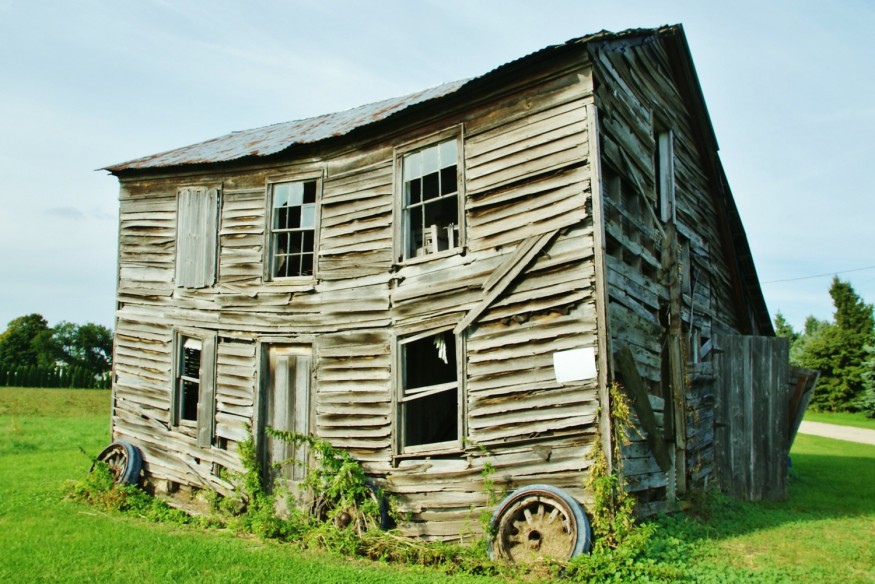
Looking for Cheap Properties to Buy? Watch out for these lurking problems that could bankrupt you...
Distressed properties are magnets for real estate investing. Investors are constantly on the lookout for motivated sellers and cheap house deals. Sometimes these properties can be incredibly profitable. In other cases, the issues lurking beneath the surface can turn to those gold mines into money pits.
House flippers can make tens of thousands of dollars per deal. Some make far more, and expect to turn 50% plus profits on each home they buy. However, unlike the glamorous depictions on 'reality' TV shows, landlords and house flippers often get themselves into deep water. Overlooked repairs can mean tens of thousands of dollars in unexpected bills. If you can't finish the job and resell it before you run out of money, you could lose everything.
Here's what to watch out for...
Foundation Flaws
Foundation problems can be some of the most common and most expensive for property owners to fix.
These run the gamut from the modestly easy to repair to major structural issues. It could just be small cracks and sticking windows and doors due to the weather or regular settling. It could be a need to waterproof basements and crawl spaces to prevent future damage. Or just new gutters or a sump pump that will do the job. Or it may be major foundation cracks and flaws that need to be fixed quickly, before more damage is caused after your other renovations.
Telltale signs of foundation issues can include foul smells, condensation, warped flooring, rotten wood, stains, cracks, mildew, and leaning structures. Get them inspected, and have a pro explain your options.
Roofs
The roof may look fine from the outside. A fresh new coat of paint on the interior ceiling may show no signs of stains today. If you are buying properties in the winter in NC, VA, MD, or DC you might not even be able to see the roof for the snow.
According to the American Society of Home Inspectors, roofs can be some of the most expensive repairs for home buyers. A new roof may run as little as $7,000. Or it could cost you tens of thousands of dollars. A lot will depend on the material, roof design and square footage.
Get it inspected. Find out whether you can simply patch a hole, or can put on another layer of shingles, versus complete replacement.
Flooding & Leaks
Most homes seem to be in flood zones and require flood insurance today. In most areas it may actually be very rare for flood waters to enter a home and do serious damage. Yet, it can happen. Some unscrupulous house flipper may have tried to cover it up with a coat of paint. Or faulty new construction could be causing leaks that are rotting the home from the inside out.
A moisture detector is one of the best tools for really finding out what's happening under the surface. Watch out for and investigate high moisture levels. Look for signs of interior and exterior stains and cracks which could indicate an active or old leak. Balcony railings and stucco can be problematic, and pose risk of leaks even on million dollar custom homes.
Electrical Wiring
Old homes may have outdated wiring, sockets, switches and panels. These can present very dangerous fire and electric shock hazards. Not the type of risk you want to take with a new home buyer or tenant. Nor to deal with during your rehab, after you've put in all kinds of new finishes. A new electrical panel alone can cost thousands of dollars. In extreme cases interior walls may need to be ripped out to allow for completely new wiring.
Plumbing
Plumbing is another one of those licensed trades which real estate investors shouldn't be trying to tackle themselves.
Old pipes can stink, be full of mold, and may be made of out of date and hazardous materials. Replumbing a house is major work, and it isn't cheap.
Poor Drainage
It is quite common for home inspection reports to list poor drainage as a problem. There may be soggy areas in the yard, erosion around the exterior of the home, or leaks and water damage in the basement as a result.
It could be a quick and easy grading fix you need. Or it could be a leaking septic tank. Missing or clogged gutters and basement cracks are also common culprits.
Hidden Debt
Distressed properties are typically distressed for a reason. They haven't been updated or maintained because the previous owner didn't have the money to do it. That also means they can be behind on property taxes, utility bills and more. They could have mechanics liens against the home, judgements from creditors, including the IRS, or code violation fines for non permitted changes or illegally converting, dividing or renting out spaces in the home. A title and lien search will help you spot and avoid these costly problems.



